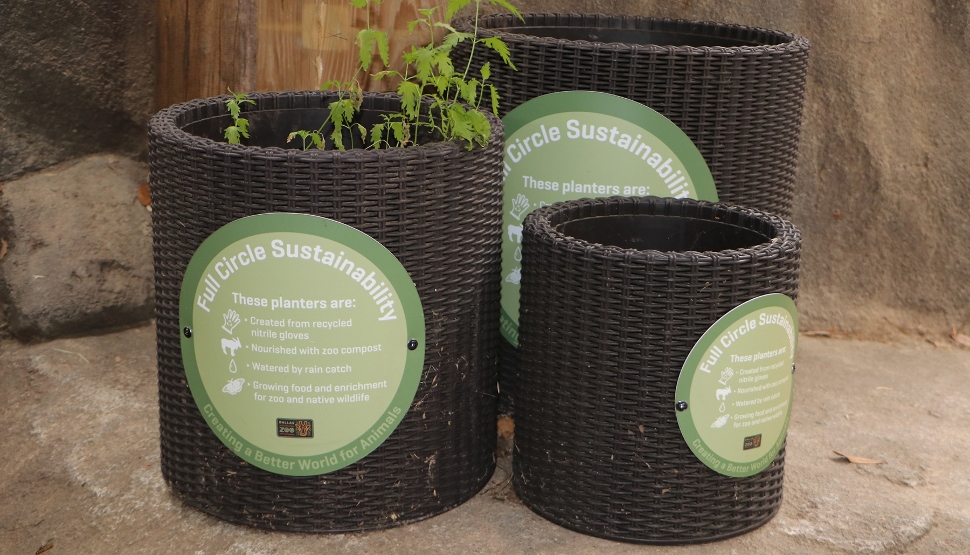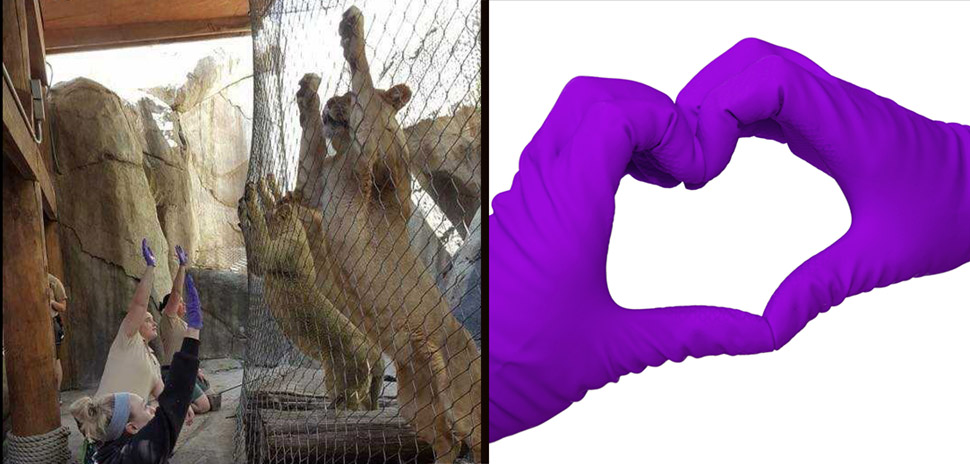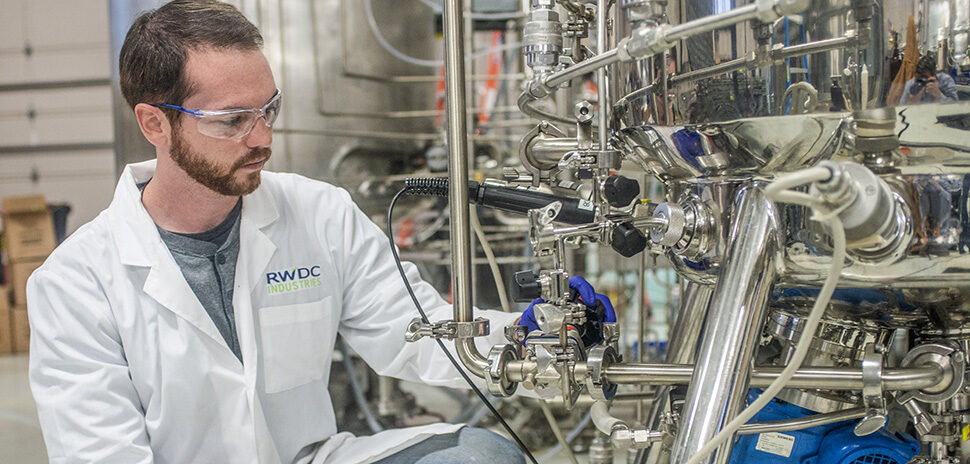Irving-based Kimberly-Clark Corporation is working to make a difference by upcycling its hard-to-recycle products, and the evidence is visible right here in North Texas.
The Dallas Zoo has partnered with Kimberly-Clark’s RightCycle Program to create a better world for animals by recycling its own waste. In this case, nitrile gloves that might be used for animal care, cleaning, and food preparation.
And the program is clearly paying off: since 2018, some 1,000 pounds of the zoo’s waste has been turned into products like outdoor seating solutions or eco-responsible planters used to decorate outdoor spaces. (Fun fact: That’s roughly the weight of one of the zoo’s female giraffes.)
RightCycle works like this: Garments like nitrile gloves, eye-protectant goggles, and single-use apparel are collected and shipped to recycling centers. From there, the used products are sorted, processed, and reduced into plastic pellets or nitrile powder. The pellets and powder are then molded into durable, eco-responsible products.
“When these gloves go to a landfill, they can be consumed by wildlife or they can wind up in our oceans and harm marine life,” Shannon College, a Dallas Zoo animal supervisor who runs the zoo’s Green Team, said in a statement. “Our team members were really excited, and they immediately agreed to participate in the program. Anything we can do to reduce that impact is vitally important to us.”
The zoo has even bought some of the eco-responsible products of its own in the form of planters. College says the pots benefit the zoo in a number of ways because the gloves can be “turned into plastic products like the ones guests see around the zoo, with plants that benefit local pollinators and herbs that we use as scent enrichment activities for our animals.”
Apart from the RightCycle Program, the zoo is also recycling Styrofoam to create EcoCrete, conserving energy by converting incandescent bulbs to LEDs, and growing food for its animals in its own gardens. According to its website, the zoo’s combined environmental efforts divert over 61 tons of waste from landfills each year.
All told, Kimberly-Clark estimates that the RightCycle Program has pushed some 830 tons of waste from landfills since 2011. Including the Dallas Zoo, its recycling partners number 150.
Other Texas organizations are also enrolled in the RightCycle program, including Raytheon and Recycle Revolution here in Dallas. Also on tap are Abbott, Plano; Arconic Fastening Systems, Waco; MilliporeSigma/Ceriliant, Round Rock; University of Texas Green Labs, Austin; and Skinmedica, Houston.
And when it’s not engaged in recycling waste by the tons, the Dallas Zoo is busy contributing to Hollywood blockbusters—or at least the Disney remake of the season.
According to numerous reports, young Simba’s features and movements in Disney’s new Lion King remake are based on Bahati, a lion born two years ago at the Dallas Zoo. Footage of the cub, then only a month old, was given to animators so they could study a lion cub’s typical movements, KDFW reports.
“We just happened to have a cub at the right time when they were in that phase of the film,” Dallas Zoo spokesperson Kari Streiber told Dallas Observer. “So we were able to provide some reference points. Of course, we love to think we can see little bits of Bahati when we look at Simba now.”

Planters made from recycled nitrile gloves are displayed at Dallas Zoo. [Image: Courtesy Dallas Zoo]
![]()
Get on the list.
Dallas Innovates, every day.
Sign up to keep your eye on what’s new and next in Dallas-Fort Worth, every day.


































































